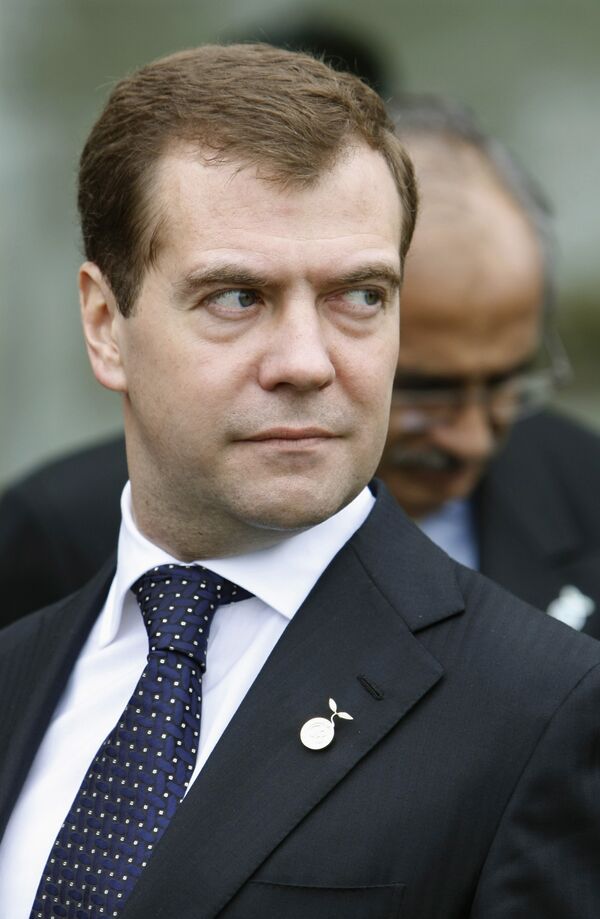MOSCOW. (RIA Novosti commentator Andrei Murtazin) - Egypt is the first Arab country the current Russian president is going to visit. Unlike his forerunner Vladimir Putin, who went to Cairo only during his second presidential term, Dmitry Medvedev has not put off his trip to the land of the pyramids and will arrive in Egypt on June 23.
The purpose of the visit is not the economy but politics: coordination of Russia's Middle East policy with a key political player. This is very important, considering the current deadlock on practically all tracks of the Middle East peace settlement since Benjamin Netanyahu's hardheaded cabinet came in.
In the wake of recent journeys to the Middle East by U.S. President Barack Obama and Secretary of State Hillary Clinton and their meetings with regional leaders, Russia has decided to re-activate its own Middle East policy, where far from everything is plain and smooth.
Moscow's efforts to sit down the Syrians, Israelis, warring Palestinians from Fatah and Hamas and the Americans at the same table have so far failed. The deadline for a Moscow conference on the Middle East is being pushed back all the time, and none of the responsible politicians risks giving even a tentative date. At the same time, Cairo is running the delicate mission of a go-between in solving Middle East issues. The Egyptian capital and Sharm al-Sheikh have become routine meeting places for Arabs to talk with each other and with the Americans and Israelis.
Egypt is in agreement with Russia on practically all aspects of Middle East policy, but expounds American influence in the region, for a free annual payment of two billion dollars from Washington (under the 1978 Camp David Agreements). From Moscow, Cairo expects not money, but a harsher attitude towards Benjamin Netanyahu's new Israeli cabinet, which has reneged on the "policy of concessions to the Arabs," adhered to by his predecessor Ehud Olmert.
Egyptian leader Hosni Mubarak supports the idea of a Moscow peace conference but views it as a continuation of Annapolis. Unfortunately, the main decision of the Annapolis meeting (November 2007), announced with pomp by George W. Bush - to create a Palestinian state before 2009 - has remained on paper. This is why Moscow is taking such pains to prepare a peace conference and is not in a hurry to call one.
Moscow and Cairo call each other strategic partners. This partnership includes not only political cooperation, but also business. To date, trade between Russia and Egypt has amounted to $3.4 billion. The number of Russian tourists in Egypt is two million a year.
An Egyptian nuclear project may prove another attraction for Russia. Back in March 2008, during Hosni Mubarak's visit to Moscow as Egyptian president, Russia and Egypt signed an agreement on the peaceful uses of nuclear energy. The agreement allows Russian companies to bid in a tender for the construction of a nuclear power plant. The price of the question is $1.5 billion to $2 billion. Moscow's chances will be clear at the upcoming negotiations between the leaders of the two nations.
In 2008, during his last visit to Moscow, Hosni Mubarak jokingly told Vladimir Putin that he saw no difference between him and Dmitry Medvedev. Seen through the prism of Moscow's Middle East policy, this is really so.
The new president has not changed Russia's Middle East strategy, nor the nature of bilateral Russian-Egyptian ties. Unlike the U.S., the change of administration in the Kremlin will not call for a reset of Russian-Arab relations.
The opinions expressed in this article are the author's and do not necessarily represent those of RIA Novosti.



